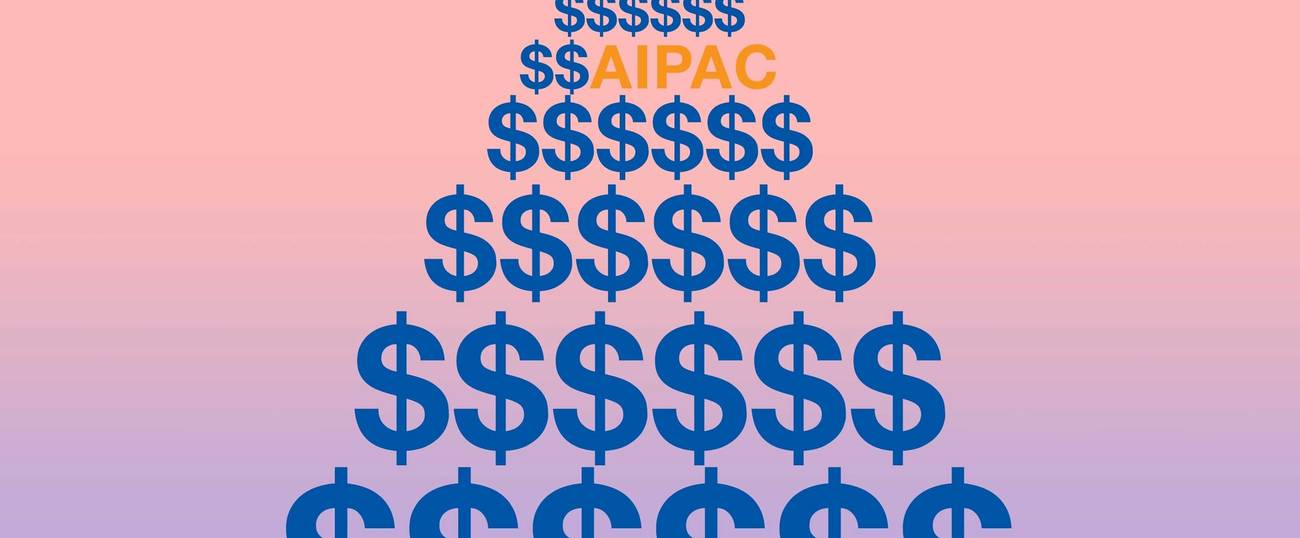How Influential Is AIPAC? Less Than Beer Sellers, Public Accountants, and Toyota
A list of lobbies and their spending may surprise Congresswoman Omar and her supporters




Congresswoman Ilhan Omar’s controversial comments, repeatedly suggesting that the relationship between the United States and Israel is fueled by vast sums of lobbying money, have been condemned by several of her fellow Democrats. Still, her allegations linger , with The New York Times publishing a story seriously examining Omar’s premise and wondering “Has Aipac—founded more than 50 years ago to ‘strengthen, protect and promote the U.S.-Israel relationship’—become too powerful?” In the online edition of the article, the question was positioned directly below an image of a pro-Israel activist in tefillin.
One could be forgiven for thinking that the organization under discussion was one of the biggest political spenders in America. In reality, AIPAC is a public affairs committee and not a political action committee; as a result, the group itself donates nothing to candidates or campaigns. By far the largest pro-Israel donor to political candidates last election cycle was JStreetAC, which gave entirely to Democrats.
AIPAC has a somewhat unique model that a simple dollar comparison might miss. AIPAC-linked activists often begin donating to future members of Congress early in their political careers, thus encouraging other pro-Israel donors to fund and otherwise support candidates with long-term promise. Pro-Israel activists are a political force, but the reasons apparently go beyond sheer spending power or the influence of AIPAC-linked networks. According to the Center for Responsive Politics, pro-Israel donors were’ the 34th largest-giving interest group to members of Congress in 2018, slightly behind the nonprofit sector and slightly ahead of building-trades unions, neither of which are generally thought of as the invisible hand guiding American policy.
Even a large and impactful donor network is fairly useless without a Washington operation that can translate its priorities into actual legislation. The way AIPAC is talked about, you’d think they’d be a lobbying juggernaut, surely one of the largest in the nation’s capital.
Wrong again: For the period between 1998 and 2018, AIPAC didn’t make a dent in the Center for Responsive Politics’ list of the top-spending lobbying groups. The US Chamber of Commerce spent $1.5 billion during that span, with the National Association of Realtors coming in a distant second, at $534 million. In 2018, top spenders included Google parent company Alphabet, which spent $21.7 million in Washington, and Facebook, which shelled out over $12 million to lobbyists that year. The third-largest spender of 2018 was the Open Society Policy Center, a project of the notably Israel-critical billionaire George Soros, which ran up a $31.5 million tab in its attempts to influence the federal government. That nearly doubled the organization’s $16 million in spending in 2017, another year that AIPAC failed to crack the top 50, unlike such notorious civic menaces as American Amusements and AARP.
In 2018, total pro-Israel lobbying spending was around $5 million, of which AIPAC accounted for $3.5 million. In contrast, Native American casinos spent around $22 million that year. By Tablet’s count, AIPAC was the 147th highest-ranked entity in terms of lobbying spending in 2018. Their expenditures were about the same as International Paper, a company which is seldom tweet-stormed or even written about. The American Association of Airport Executives and Association of American Railroads outspent AIPAC by nearly a million dollars each—sensible, given the rivalry between the respective modes of transportation whose interests they represent. It’s $2 million behind both American Airlines and the Recording Industry Association of America, entities whose malign influence has gone regrettably underexamined over the years.
And so, in case you still believe, like Omar, that it’s all about the Benjamins, here are some entities whose lobbying budgets far, far surpass that of AIPAC (all figures come from the Center for Responsive Politics’ lobbying database):
The Top Ten:
US Chamber of Commerce: $94,800,000
National Association of Realtors: $72,808,648
Open Society Policy Center: $31,520,000
Pharmaceutical Research & Manufacturers of America: $27,989,250
American Hospital Association: $23,927,842
Business Roundtable: $23,160,000
Alphabet Inc.: $21,740,000
American Medical Association: $20,417,000
Blue Cross / Blue Shield: $18,754,221
AT&T Inc.: $15,820,000
Other Key Names in the Top 50 who have outpspent AIPAC last year:
Boeing Co.: $15,120,000
Comcast Corp.: $15,072,000
Amazon.Com: $14,400,000
Facebook Inc.: $12,620,000
Pfizer Inc.: $11,360,000
Exxon Mobil: $11,150,000
FedEx Corp: $10,170,000
National Amusements Inc.: $8,058,290
Anheuser-Busch InBev: $8,050,000
Toyota Motor Corp.: $7,150,453
Philip Morris International: $6,230,000
Recording Industry Association of America: $5,642,155
Association of International CPAs: $5,200,000
Entertainment Software Association: $5,020,000
All pro-Israel lobbying groups combined: $5,022,028
AIPAC alone: $3,518,028
***
Like this article? Sign up for our Daily Digest to get Tablet magazine’s new content in your inbox each morning.
Armin Rosen is a staff writer for Tablet Magazine.